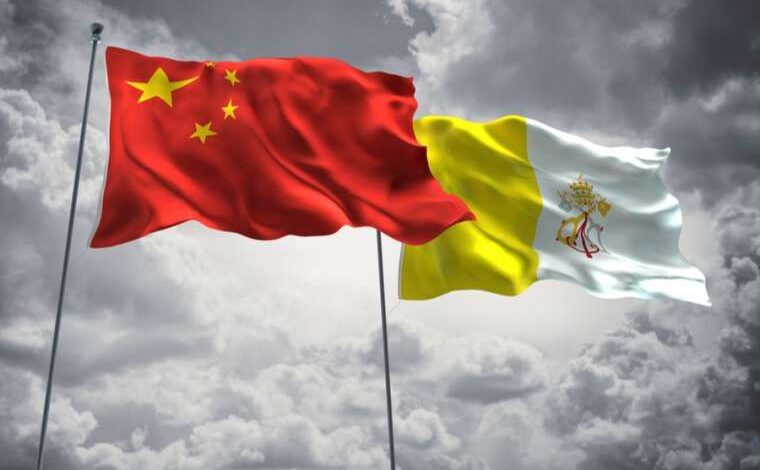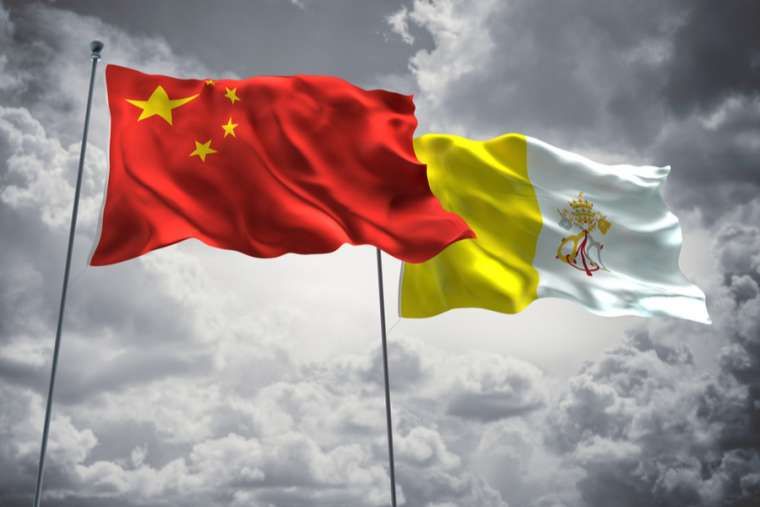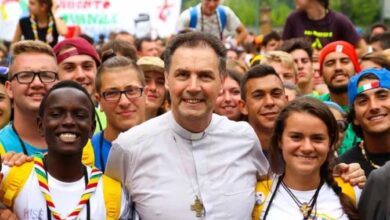Who are the Chinese bishops attending the Synod on Synodality?

 Credit: FreshStock/Shutterstock / null
Credit: FreshStock/Shutterstock / null Rome Newsroom, Sep 21, 2023 / 09:54 am (CNA).
The Vatican announced Thursday that two bishops from mainland China have been added as official delegates in the upcoming Synod on Synodality assembly.
Bishop Antonio Yao Shun of Jining and Bishop Joseph Yang Yongqiang of Zhoucun will travel from China to Rome to participate as full members of the Oct. 4–28 Synod of Bishops on the topic of “For a Synodal Church: Communion, Participation, Mission.”
The bishops join Taiwan Bishop Norbert Pu of Kiayi and Cardinal-elect Stephen Chow, the bishop of Hong Kong, who were already announced as synod delegates in July.
The Vatican publicized the addition of the two mainland Chinese bishops during a press conference on the eve of the fifth anniversary of the signing of the Vatican-China deal, the provisional agreement on the appointment of bishops between the Holy See and Beijing on Sept. 22, 2018.
It is not the first time that Beijing has approved bishops from the mainland to participate in a Synod of Bishops. Chinese Bishop Joseph Guo Jincai and Bishop Yang Xiaoting of Yan’an attended the first half of the youth synod in 2018 before suddenly leaving the synod early without explanation. Both bishops had close ties to the government-approved Chinese Catholic Patriotic Association and stayed in Vatican City’s Santa Marta guesthouse, where Pope Francis resides.
One of the bishops attending this year’s assembly was the first bishop consecrated in China under the terms of the Vatican-China agreement.
Here is what we know about the two Chinese bishops who will come to the Vatican for the 2023 Synod on Synodality assembly:
Bishop Joseph Yang Yongqiang was ordained as a bishop with Vatican approval in 2010 and has served as the bishop of Zhoucun in mainland China’s Shandong Province since August 2013.
Yongqiang, 53, participated in the 2023 National Committee of the Chinese People’s Political Consultative Conference, a political advisory body that is part of the Chinese Communist Party’s united front system, where it was decided that the Catholic Church should integrate its thought with the party and unite more closely to Xi Jinping, according to the official website of the Catholic Patriotic Association.
He is the vice president of the Chinese-government-sanctioned Catholic bishops’ conference and was elected as a leader of the Chinese Catholic Patriotic Association in December 2016. At his episcopal ordination, Yongqiang told UCA News that he saw the potential to increase dialogue with the underground Catholic community.
Last year, Yongqiang led a meeting presenting how Catholics must study the spirit of the 20th National Congress of the Communist Party of China.
Yongqiang was born into a Catholic family in Shandong’s Boxing County in 1970 and studied for the priesthood in Shanghai’s Sheshan seminary before he was ordained in 1995.
He worked for the provincial Catholic Patriotic Association and Chinese Church Affairs Committee in 2005 while he taught at the Holy Spirit Major Seminary in Jinan.
Earlier this month, Yongqiang attended a study session on how to implement the new “Measures on the Management of Religious Activity Sites,” government restrictions that ban the display of religious symbols outdoors, require preaching to “reflect core socialist values,” and limit all religious activities to government-approved religious venues, according to China Aid.
Bishop Antonio Yao Shun was the first bishop consecrated in China under the terms of the Sino-Vatican agreement, on Aug. 26, 2019. He is the bishop of Jining in China’s Autonomous Region of Inner Mongolia.
Before his appointment, Yao, now 58, had served as the secretary and later vice director of the liturgical commission overseen by the Chinese Catholic Patriotic Association and the Council of Chinese Bishops since 1998. He returned to the Diocese of Jining in 2010 to serve as vicar general.
Born in Ulanqab in 1965, Yao is a native of Inner Mongolia. He both studied and taught at the national seminary in Beijing. After his ordination to the priesthood in 1991, Yao completed a degree in liturgy in the United States at St. John’s University in Minnesota from 1994 to 1998. He also spent some time pursuing biblical studies in Jerusalem.
The New York Times has reported that the Vatican had approved Yao as the successor of Bishop John Liu Shigong in the Diocese of Jining in 2010, but the Chinese government refused to approve him, even after Bishop Liu died in 2017 at the age of 89.
However, Chinese researchers have pointed out that Yao is not one to speak out critically about the Chinese government.
“The Communist Party feels comfortable with him,” Francesco Sisci, a Beijing-based researcher on Chinese Catholicism, told the New York Times in 2019. “They don’t want someone doing agitprop against them.”






